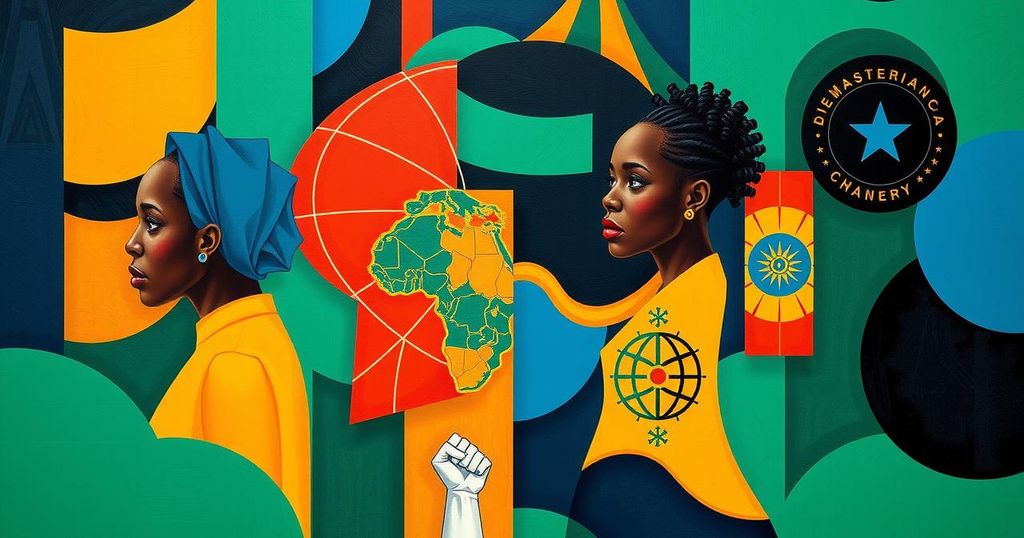Namibia Elections: Swapo’s Losses and the Shift in African Politics

Namibia’s governing party, Swapo, retains power but faces significant losses in the recent elections, indicative of a broader trend across sub-Saharan Africa where many incumbent parties struggle amid public discontent with corruption and economic issues. Opposition parties are increasingly gaining ground and adapting their strategies, reflecting a notable shift in the political climate of the region.
Namibia’s ruling party, Swapo, has experienced a weakened grasp on power despite retaining its position after more than three decades. The official results indicate that Netumbo Nandi-Ndaitwah, representing Swapo, won the presidential election with 57% of the vote, marking her as the first female leader of Namibia. However, the opposition parties contested the election results, alleging logistical problems and irregularities during the polling process.
Swapo’s situation echoes a broader trend in sub-Saharan Africa, where many incumbent governments faced significant electoral challenges in 2024. The voter sentiment has soured against these governing parties, driven by an economic downturn, an intolerance for corruption, and the rise of assertive opposition parties. This cascading trend of electoral losses for incumbents appears poised to carry into the 2025 electoral cycle.
The elections that unprecedentedly altered power dynamics, including the October elections in Botswana, where the Botswana Democratic Party (BDP) lost a substantial number of seats, reduced from 38 to merely four in a 69-seat parliament. Similarly, the governing party in Mauritius suffered a severe defeat, with the Alliance Lepep coalition now holding only two seats compared to the opposition’s dominant 60.
Senegal also witnessed a remarkable shift in power, where released opposition leaders Faye and Sonko turned the tide, with Faye winning the presidency while the government candidate secured only 36% of the vote. Even in cases where governments retained power, such as South Africa’s African National Congress, they did so amidst significant challenges, losing the majority of their cabinet posts.
Three significant trends have led to this political shakeup: a growing citizen concern regarding corruption, the erosion of government credibility due to economic mismanagement, and increased public demand for civil liberties. Citizens, facing rising costs of living driven by inflation, have contributed to a collective discontent that played a crucial role in many of these electoral outcomes.
Notably, the opposition strategies have evolved, focusing on coalition building and ensuring election processes were closely monitored. The collaboration of three opposition parties in Botswana under the Umbrella for Democratic Change is an example of this new political approach. Should similar patterns continue, upcoming elections in Ghana and Malawi could also reflect this wave of potential opposition victories.
This trend in Africa, amidst a global backdrop of democratic decline and the rise of authoritarianism, highlights the region’s unexpected resilience. As citizens, civil society groups, and opposition parties mobilize for accountability and transparency, the developments suggest a more robust appetite for democracy than generally perceived. International observers and democratic advocates should therefore pay closer attention to Africa as it showcases resilient examples of democratic bounce-back.
In summary, Namibia’s recent elections reflect a significant shift in the political landscape of sub-Saharan Africa. Swapo’s diminished power alongside the electoral defeats faced by various incumbents illustrates a growing public discontent with corruption and economic management. As opposition parties learn from past experiences and adapt their strategies, the potential for political transformation seems feasible for future elections. This trend highlights Africa’s democratic resilience amidst global challenges and underscores the importance of continued advocacy for multiparty politics.
Original Source: www.bbc.com








